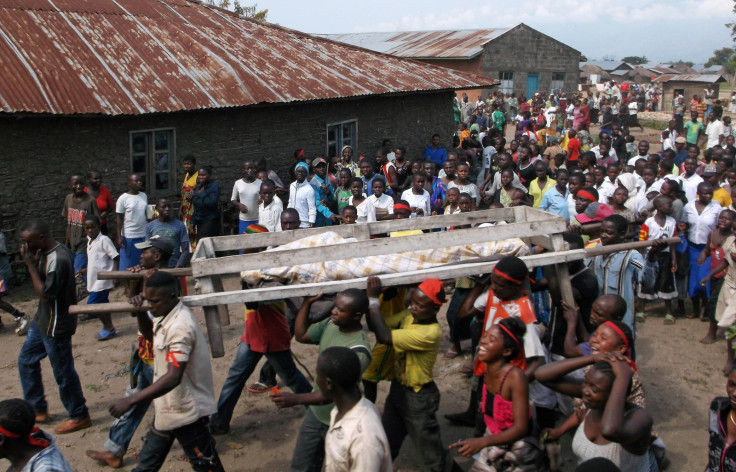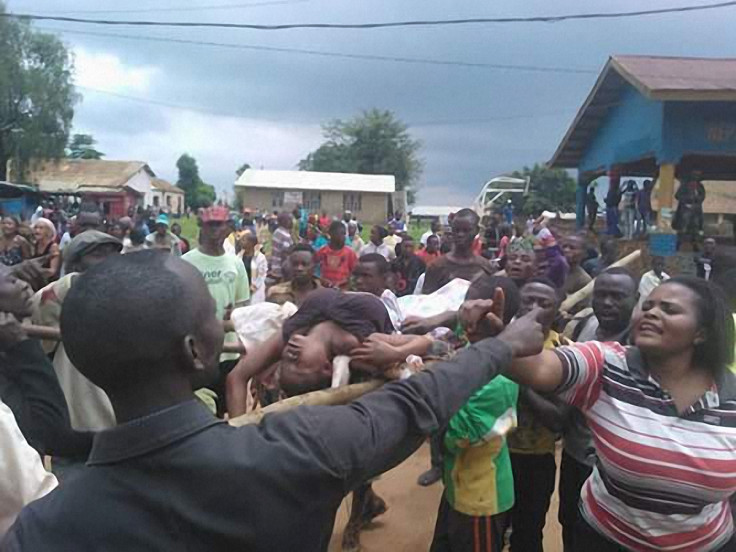Pope Francis slams 'shameful silence' of international community on Beni massacres in DRC
More than 1,150 people have been killed and kidnapped in DRC's mineral-rich North Kivu province.

Pope Francis has denounced the "shameful silence" against the massacres committed in the restive North Kivu province of the Democratic Republic of Congo (DRC).
Since the massacres began two years ago in the territories of Beni, Butembo and Lubero in North Kivu, more than 1,150 people have been killed and kidnapped, with thousands more displaced.
In the latest massacre on Saturday (13 August), at least 45 people including children were believed to have been killed with axes and machetes in a commune south-east of the town of Beni. Civil society groups said on 15 August the number of people hacked to death may have risen to 51. (Read more: Beni residents urged to become vigilantes after over 40 killed in massacre).
The assailants' identity also remain unknown, but residents believe they could be from the rebel ADF-Nalu group, who have inhabited the region's dense forest for three decades.
Pope Francis: Victims have 'no weight on world opinion'
During his Angelus for the Solemnity of the Assumption on 15 August, Pope Francis slammed the silence of the international community with regards to the mass-killings, and called for "peace and harmony".
"My thoughts go to the people of North Kivu, in the DRC, who have been recently hit with fresh massacres, which have for some time been perpetrated in shameful silence, without attracting even as much as our attention," the Pope said. "Unfortunately, they are part of the too many innocent people who have no weight on world opinion."
Failings of security forces?
Speaking exclusively to IBTimes UK on 14 August, the president of the civil society of Beni who has been recording some of the worst massacres in the country's recent history, denounced the alleged impassivity of the security forces.
"There is a vast fear in the population to see so many people slaughtered with machetes and axes like animals," Kizito Bin Hangi said.

Hangi explained that, while residents warned of an imminent attack on 13 August and asked Congolese security forces to "take measures", security forces intervened too late.
According to Hangi, the United Nations (UN) mission in DRC (MONUSCO), a foreign force, which was deployed throughout the territory of Beni to provide protection to populations, did not intervene until later that night.
UN: 'barbaric act committed against the civilian population'
A day after the massacre, MONUSCO published a statement in which it "reiterates its support to the FARDC (armed forces of the DRC) and the PNC (Congolese National Police) to protect the civilian populations of Beni" in the wake of the "barbaric act committed against the civilian population".
In a statement published on 15 August, UN Special Envoy for the Great Lakes Region Said Djinnit encouraged the Congolese authorities and MONUSCO "to increase their cooperation in addressing the scourge of armed groups in eastern DRC in general and Beni, in particular". The Special Envoy noted that "[the] attack will not deter from the collective determination to neutralise all negative forces that continue to cause sorrow and atrocities in eastern DRC."
The same day, UN Secretary-General Ban Ki-moon also strongly condemned the killing, and confirmed the UN mission had deployed forces.
"[Ban] condemns in the strongest terms this latest attack in the Beni area where, since October 2014, several hundred civilians have been killed by suspected members of the ADF," a statement issued by his spokesperson, said. He went on to call for those responsible for this attack to be brought to justice.
© Copyright IBTimes 2025. All rights reserved.






















